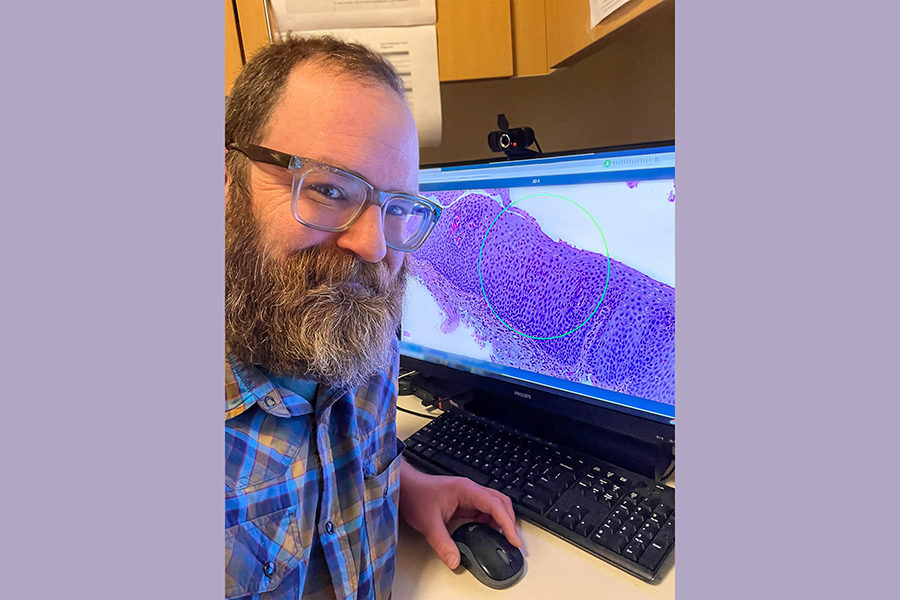
Home » New technology reduces turn-around time for lab samples
New technology reduces turn-around time for lab samples
“Every moment matters for our patients.”

Dr. Isaac Grindeland led the effort to get a new digital scanner at Incyte Diagnostics, which serves patients throughout the Tri-Cities.
Courtesy Incyte DiagnosticsFebruary 14, 2024
A medical laboratory in Richland can now process specimens – often fluids or tissues – much faster than before, thanks to the addition of digital slide scanners.
The upgrade has come to the Spokane Valley headquarters for Incyte Diagnostics, which has a patient location at 221 Wellsian Way in Richland.
Samples collected from patients at the Richland lab, Kadlec Regional Medical Center, Lourdes Medical Center or Trios Health have always been sent on a slide to Spokane for processing, which could take up to three days.
Now, when slides are shipped to Spokane, they’re digitally scanned, allowing for a much quicker review by a pathologist.
“Before, when they were waiting for pathology cases, they were waiting for physical slides with patient specimens embedded in them to be physically delivered to them, to then be able to look at them underneath the microscope and to make a diagnosis,” said Isaiah Rinaldi, spokesperson for Incyte Diagnostics.
“After that, they return those slides back to the lab to get filed away in case they need to be referenced again. With this digital implementation, the slides are scanned immediately after they’re created under a high-resolution scanner that uploads it into our computer system, where a pathologist can pull it up on their computer and zoom in to 40 times magnification.”
The scanners are designed for high-volume laboratories and can input up to 300 slides in a single batch. Incyte worked with its vendor, Philips, to install the scanners and train staff on the software.
The new technology allows for real-time collaboration among pathologists across different locations to enhance peer review opportunities for diagnostics, as opposed to the former way of shipping the slide from reviewer to reviewer, as needed.
“Now, if they need a specialist to look at a case to get their opinion, they can be looking at (the slide) at the same time and make that diagnosis together,” Rinaldi said.
Dr. Isaac Grindeland said digital pathology creates significant improvements in workload balance, subspecialty and consult optimization, case turnaround time, worksite flexibility, collaboration and communication. “Every moment matters for our patients, and digital pathology will help us increase the quality of care for them,” he said.
Incyte says it employs nearly 50 pathologists with subspecialty training in pathology fields related to dermatology, gynecology, hematology, urology and more. There are patient collection laboratory locations also at a clinic in Walla Walla and at St. Anthony’s Hospital in Pendleton.
Latest News Health Care Science & Technology
KEYWORDS February 2024
Related Articles





